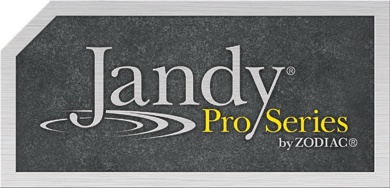Your driveway paving options used to be so simple.
Asphalt or concrete?
These days, your options for the best driveway materials will dazzle you. And maybe confuse you. Asphalt? Concrete? Stamped concrete? Concrete pavers? Marble or travertine? That’s right — we said marble for your driveway.
Driveway materials have come a long way since your grandparent’s car crunched up and down their gravel drive. Innovations in technology have created textures and vibrant colors like never before without sacrificing the sturdy qualities you need in your hard-working driveway.
Let’s take a look at a few popular options and how to figure out what’s the best driveway material for you and your home.
Asphalt Is Your Most Limited Driveway Option
Asphalt is the most limited driveway choice, but some homeowners like its sleek black finish and its affordability. Asphalt is much cheaper to install than other driveway options.
Don’t look for any fancy finishes with asphalt. It’s black.
About six months to a year after installation, asphalt driveways should be sealed to extend their life. And you’ll want to seal your asphalt driveway every three to five years afterwards.
Asphalt will crack over time, but the cracks are easy to repair and the repairs blend well into the original driveway.
Another plus: Asphalt can be resurfaced fairly inexpensively, leaving a brand new top coat if the old layer falls into disrepair.
Love to go barefoot? Be warned: that black asphalt really soaks up the heat.
Poured Concrete Is Easy To Customize
Concrete gives you more options than asphalt. It can be stained or tinted in an array of colors and unique patterns.
Concrete can also be stamped into different designs or etched or engraved to get different looks, and it can have different finishes such as brushed or exposed aggregate.
Like asphalt, you’ll need to seal it periodically to preserve the look and finish.
Winter can be tough on concrete. It tends to crack and suffer from frost heaving in freezing weather. Salt used for ice melting can create pits in concrete leaving blotches across your driveway.
Unlike asphalt, it’s tough to disguise repairs on a concrete drive. A light-colored concrete driveway will stay cooler in hot weather than asphalt. Speaking of light colors, pale concrete is more susceptible to oil stains and tire marks. Removing these marks usually calls for a special stain remover.
Driveway Pavers Can Cost The Most, Last The Longest
 Driveway pavers cost about twice as much as a poured concrete driveway and up to four times the cost of simple asphalt. Driveway pavers come in a variety of materials — concrete, cobblestone and even marble and travertine.
Driveway pavers cost about twice as much as a poured concrete driveway and up to four times the cost of simple asphalt. Driveway pavers come in a variety of materials — concrete, cobblestone and even marble and travertine.
But keep in mind driveway pavers last much longer than other driveway options, with hardly any maintenance. And they’re the king when it comes to design versatility.
They come in a huge array of colors, shapes and sizes, which means there’s no end to the patterns and designs you can create, including striking accent borders and medallions.
When installed properly over a well-compacted sub-base, pavers won’t crack, shift or settle under normal vehicle traffic. Paver driveways don’t crack from freezing and thawing. They’re also resistant to deicing salt and come with a lifetime warranty.
High quality pavers contain pigment all the way through, so the color won’t disappear over time.
Unlike asphalt and poured concrete, which need time to set and cure, you can drive on a paver driveway as soon as it’s installed.
One drawback to consider here in the snowy Northeast is shoveling paver driveways can be a chore as there are many edges to catch your shovel.
While the initial cost is higher, a paver driveway will pay for itself over time, both in lower maintenance costs and longevity.
Ready For A New Driveway? Proper Installation Is Crucial
If a friend or neighbor has complained about the quality of their paver driveway, chances are it wasn’t installed correctly.
Poorly installed pavers by unqualified contractors have tarnished the reputation of driveway pavers. That’s too bad, because a quality installation using top of the line materials is one of the absolute best driveway options.
There are lots of things an unqualified contractor can do wrong that will affect the look and performance of driveway pavers.
If you’ve seen a driveway with uneven pavers, sticking up at different heights, the base they’ve been installed on is probably not deep enough or of an even thickness.
If the pavers along the edges are falling away from the driveway, maybe contractors didn’t install edge restraints to hold the pavers tightly together.
Maybe one area of the driveway has settled. Chances are the base wasn’t compacted properly.
You get the idea. You can choose the highest quality pavers in the industry, but if they’re not installed properly, you’ll end up with a flawed driveway.
Need Help Choosing The Best Driveway Material For Your Home?
Neave Masonry can help you design your dream driveway. Our design team can work with you to select the best driveway materials, as well as landscaping options and lighting to complement your new driveway.
If you’re in the Hudson Valley, call us at (845) 463-0592. If you’re in Westchester County, call (914) 271-7996; from Connecticut, dial (203) 212-4800. Or, fill out our simple web form, and we’ll contact you about setting up your free consultation.
Our construction crews are skilled experts with the knowledge to install your driveway so it looks beautiful and will stand the test of time.
You’ll be even happier than usual to arrive home.
Images: Asphalt base, Stamped concrete























